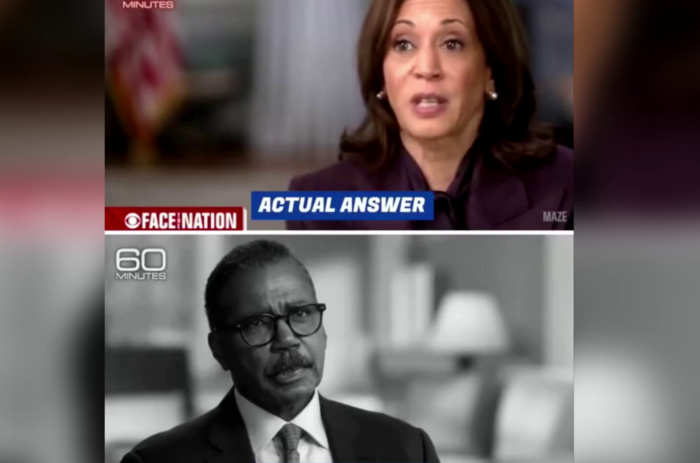redo Jump to...
print Print...
Example of Media Bias:
…NPR news boss Ellen Weiss…snubbed an exclusive interview opportunity with President Bush. Washington Post media reporter Howard Kurtz reported [in September] that the White House offered NPR’s Juan Williams an interview on race relations, but NPR didn’t want it on its airwaves. So it aired instead on the Fox News Channel.
Williams told Kurtz he was “stunned” by NPR’s decision. “It makes no sense to me. President Bush has never given an interview in which he focused on race…. I was stunned by the decision to turn their backs on him and to turn their backs on me.” …
Kurtz added:
Ellen Weiss, NPR’s vice president for news, said she “felt strongly” that “the White House shouldn’t be selecting the person.”She said NPR told Bush’s press secretary, Dana Perino, that “we’re grateful for the opportunity to talk to the president but we wanted to determine who did the interview.” When the White House said the offer could not be transferred to one of NPR’s program hosts, Weiss took a pass…
While it is not unusual for the White House to offer a presidential sitdown to a particular anchor or correspondent, Weiss noted that ABC, CBS, NBC, CNN and Fox have all had their anchors interview Bush and that NPR has been requesting such a session for seven years. When Hillary Clinton’s presidential campaign last week offered an interview to NPR’s health reporter, Weiss said, the network obtained permission to have it done instead by “All Things Considered” host Melissa Block.
Weiss is not entirely correct: Bush never sat down with Dan Rather, for reasons that aren’t hard to figure out.
Hillary Clinton is also choosy in hostile media outlets: her only Fox News Channel interviews are with her liberal friend Greta van Susteren. (That doesn’t include “Fox News Sunday,” which airs on FNC, but is a Fox show.) Fox wouldn’t demand that Hillary has to be interviewed by Brit Hume or nobody.
It makes you wonder if NPR’s liberal brass is appalled that Williams has a relationship with Fox News, including his defense of Bill O’Reilly in the current news cycle. “I had worked at NPR’s direction to develop a relationship with the White House,” he told Kurtz. “I have an expertise on race relations…. I thought the listeners of NPR lost a tremendous opportunity to hear the president in a rare interview on a very important subject.” …
- Go to NewsBusters.org for the original posting.
- Read the transcript of Juan Williams’ interview with President Bush at captainsquartersblog.com.
*Tim Graham is Director of Media Analysis at the Media Research Center.
To accurately identify different types of bias, you should be aware of the issues of the day, and the liberal and conservative perspectives on each issue.
Types of Media Bias:Questions
1. NPR’s mission, as stated on its website reads: “The mission of NPR is to work in partnership with member stations to create a more informed public – one challenged and invigorated by a deeper understanding and appreciation of events, ideas and cultures. To accomplish our mission, we produce, acquire, and distribute programming that meets the highest standards of public service in journalism and cultural expression; we represent our members in matters of their mutual interest….”
How did NPR violate its own mission by refusing the President of the United States’ offer to be interviewed by NPR Senior Correspondent Juan Williams on the issue of race relations?
2. Do you think that NPR’s news boss Ellen Weiss was reasonable in turning down the President because he requested that he be interviewed by Juan Williams? Explain your answer.
Scroll down to the bottom of the page for the answers.
Answers
1. NPR violated its mission by refusing to allow the public to hear the President’s views on race relations firsthand. Refusing to allow their Senior Correspondent to interview the President on this important matter deprived the public of vital information. Many people who listen to NPR do not watch Fox News. These listeners therefore missed out on hearing President Bush’s opinions on such an important topic. NPR chose not to work with the White House in providing its listeners with a candid interview with the President of the United States.
2. OPINION QUESTION. Answers vary.



